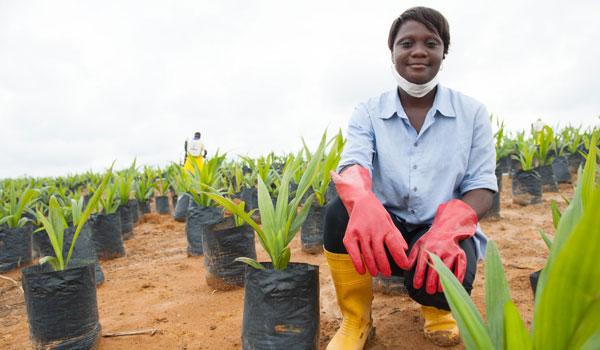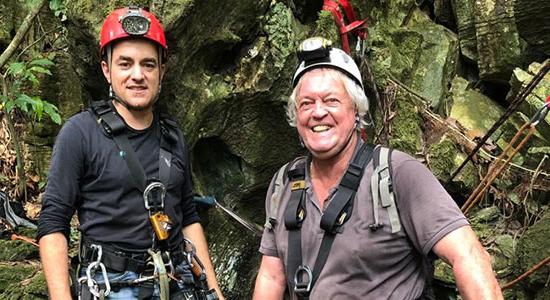Conserving Gabon’s Cultural Heritage
A treasure trove of 14th century artefacts was discovered deep within a conservation area of Olam’s palm plantation in Gabon.
One of the benefits of large-scale agriculture is the ability to create employment for communities in rural areas, reducing urbanisation, as well as improving social conditions.
The investment in palm plantations in Gabon created employment opportunities for about 6,000 Gabonese nationals. We invested in training to develop the range of new skills required on a palm plantation and its associated activities.
Since the start of development, we’ve been committed to Free Prior and Informed Consent (FPIC), and have engaged with 60 villages in the proximity of the plantations to ensure understanding of our goals and to provide opportunities to raise concerns. We’ve hired and trained social communicators from these communities who understand the traditional social structures in the villages and the best means of communicating and engaging with different stakeholder groups.
We’ve established 10 Social Contracts across all of these villages. Our support includes supporting improved access to education by building and renovating schools, providing teachers’ houses, and providing equipment and materials for classrooms. This is enabling hundreds of local children to regularly attend school.

We support initiatives to increase food security and crop diversification, including pineapple, cassava, banana, sugar cane and vegetables. This involves providing planting materials or establishing a local processing unit for sugar cane or cassava. We’re promoting rural entrepreneurship in villages through crop processing and the production of house bricks.
Additionally, we’ve established an on-site clinic with doctors, grocery stores that provide food and necessities (with prices comparable to the nearest town), and pre-school and praying facilities. We’ve also constructed 920 two-bedroom houses with electricity and water supply.
Olam fully supports the United Nations Global Compact’s (UNGC) Guiding Principles on Business and Human Rights and commits to promote best practice throughout our activities. Our commitment to Human Rights is guided by the United Nations Declaration of Human Rights, the ILO Declaration on Fundamental Principles and Rights at Work and related international covenants.
We take a proactive approach to respecting these rights in all our workplaces, in our supply chain, our partners and in the communities in which we operate. Our goal is to treat our employees with dignity, fairness and respect and we’re guided by our shared values of Integrity and Mutual Respect and Teamwork. Our commitment to upholding human rights is reflected in all our internal policies and process, and is ingrained in the way we interact with the communities around us.
Olam Palm Gabon established a Human Rights Policy in 2015. In 2018, Olam Group has published a Fair Employment Policy. These commit to:
1. Prohibit of child labour and forced labour
2. Provide safe and healthy workplace conditions
3. Comply with the minimum wage and provide fair wage and benefits
4. Encourage diversity and inclusion
5. Protect freedom of association and collective bargaining rights
6. Maintain integrity and business ethics
Olam prohibits use any form of intimidation, harassment or violence, including the use of mercenaries and paramilitaries. We further ensure that there's no reprisal or retaliation of any kind against Human Rights Defenders as a result of reporting and participation in any investigation.
Our commitment applies all to all our operations in Gabon and includes scheme smallholders and independent smallholders.

A treasure trove of 14th century artefacts was discovered deep within a conservation area of Olam’s palm plantation in Gabon.

Managing palm plantations in a biodiversity rich country like Gabon requires extensive efforts to support and safeguard the country’s natural heritage.
